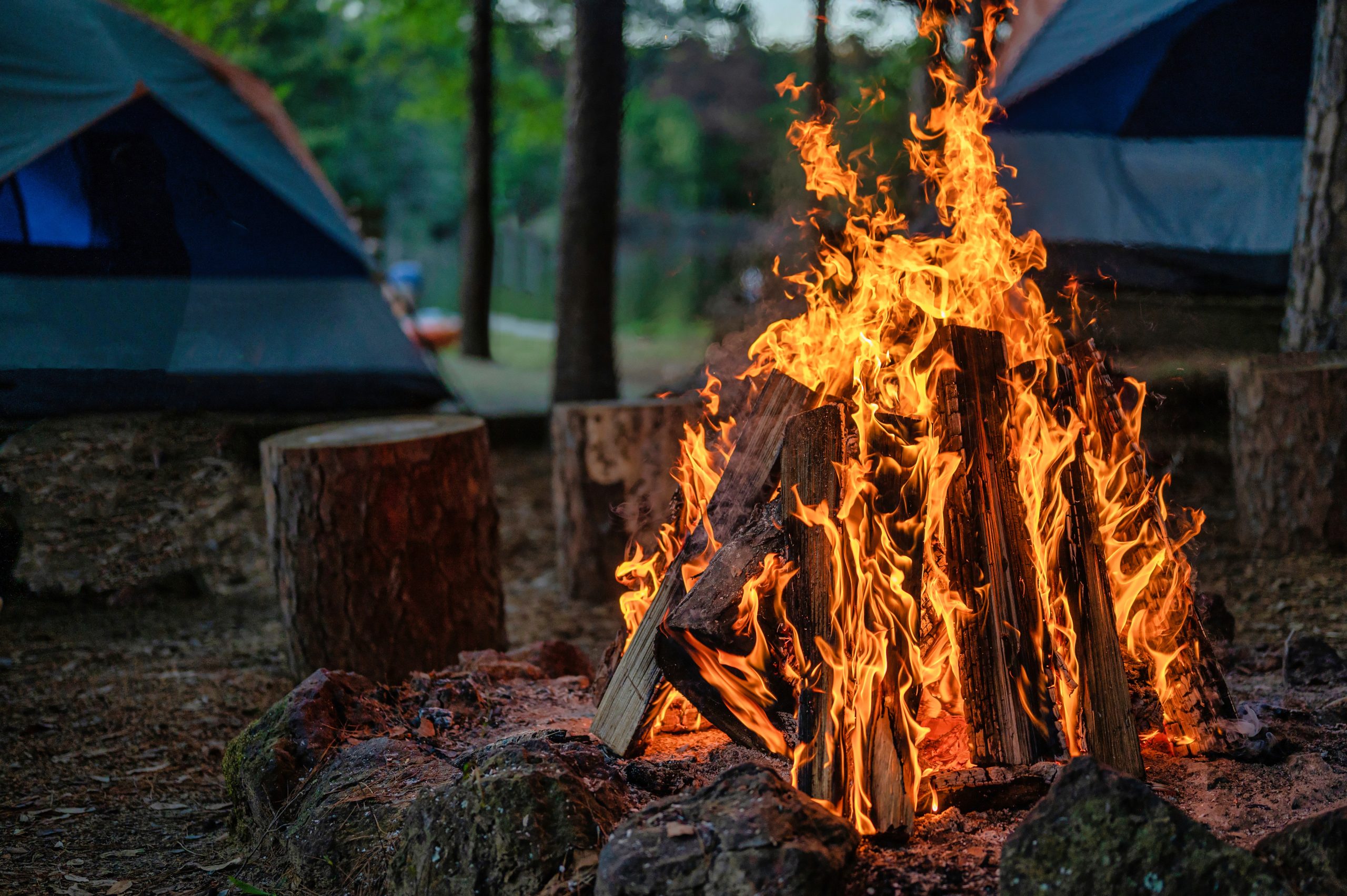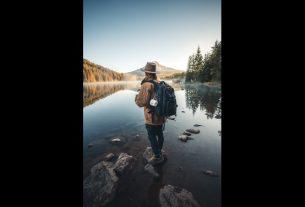Introduction
In the world of outdoor adventure, being prepared is essential. Whether you’re an experienced hiker, camper, or explorer, having the necessary survival skills can mean the difference between life and death. In this article, we will delve into ten unbelievable survival tips that every outdoor enthusiast needs to know. From understanding basic first aid to handling extreme weather conditions, these tips will equip you with the knowledge and skills to stay safe and thrive in the wilderness.
I. Understanding Basic First Aid
When you’re in a remote area, proper first aid knowledge becomes even more critical. Accidents happen, and being equipped to handle common outdoor injuries can make all the difference in an emergency. Build a well-stocked first aid kit that includes essentials such as bandages, antiseptic wipes, and pain relievers. In this section, we will cover how to treat common outdoor injuries like blisters, sprains, strains, cuts, and wounds. By knowing how to properly care for these injuries, you can prevent them from worsening and ensure a swift recovery.
- Blisters:
- Clean the affected area with antiseptic wipes.
- Apply a blister pad or bandage.
- If the blister breaks, clean it thoroughly, apply an antibiotic ointment, and cover it with a sterile bandage.
- Sprains and strains:
- Rest the injured limb and elevate it to reduce swelling.
- Wrap the affected area with a compression bandage.
- Apply a cold compress to reduce pain and inflammation.
- Cuts and wounds:
- Clean the wound with clean water or saline solution.
- Apply direct pressure with a clean cloth or dressing to stop bleeding.
- Cover the wound with a sterile bandage or dressing, and seek professional medical help if necessary.
II. Navigation Essentials-
-survival
Getting lost in the wilderness is a terrifying prospect, but knowing how to navigate without relying on GPS is a skill every outdoor enthusiast should possess. By understanding how to read topographic maps and use a compass effectively, you’ll be able to find your way even in unfamiliar terrain. We’ll also explore alternative methods for navigation, such as using natural signs, following water sources, and honing your observation skills. With these navigation essentials, you’ll have the confidence to explore new areas without losing your way.
III. Signal for Help-survival
When you’re facing a survival situation, getting help is crucial. In this section, we will discuss various methods of signaling for help in the wilderness. Learn how to create visible signals using mirrors, shiny objects, and signal fires. Additionally, discover how to use smoke signals effectively and produce audible signals using whistles, horns, or even drumming on objects. Shouting for help may also be necessary, and we’ll share tips on how to do it effectively.
IV. Finding and Purifying Water
-survival
Water is essential for survival, and locating safe water sources in the wild can be a daunting task. We’ll explore techniques for finding water, such as following animal paths and identifying signs of water underground. Additionally, we’ll cover various methods for purifying water, including boiling, using water filters and purification tablets, and constructing an improvised water filter. With this knowledge, you’ll be able to stay hydrated and avoid dangerous waterborne illnesses.
V. Building Shelters-survival
When faced with the elements, having a shelter can mean the difference between comfort and misery. In this section, we will emphasize the importance of shelter in survival situations and guide you in choosing the right shelter location. We’ll also provide step-by-step techniques for building different types of shelters, including lean-to shelters, debris huts, and tarp shelters. By mastering these construction methods, you’ll have a safe haven to protect you from the elements.
VI. Starting Fire in Any Condition-survival
Fire is a vital tool in the wilderness. It provides warmth, helps prepare food, and offers comfort during challenging times. This section will cover essential fire-starting tools to carry and teach you different fire-starting methods. From using flint and steel to creating friction with a bow drill or hand drill and even utilizing a magnifying glass or lens, you’ll learn how to kindle a fire in any condition. Furthermore, we’ll explore building reliable fire structures that will keep your fire going strong.
VII. Finding and Preparing Food
survival
Sustenance is essential for survival, and learning how to find and prepare food in the wild is a valuable skill. We’ll discuss plant identification, focusing on various edible plants that can be foraged in different environments. Additionally, we’ll touch on hunting and trapping small game and fishing in wilderness areas. Finally, we’ll delve into various cooking techniques with limited resources, allowing you to create nourishing meals in the wild.
VIII. Handling Extreme Weather Conditions-survival
Extreme weather conditions can test your survival skills to the limit. Whether it’s scorching heat, freezing temperatures, or heavy rain and storms, knowing how to handle these situations is crucial. We’ll provide tips for dealing with extreme heat, finding shade, and staying hydrated. For freezing temperatures, we’ll guide you on building a snow cave or igloo and utilizing natural insulation materials. Lastly, we’ll explore techniques to survive heavy rain or storms, focusing on constructing waterproof shelters and finding elevation to avoid flooding.
IX. Basic Self-Defense in the Wild-survival
While encountering wildlife or potential human threats can be rare, it’s essential to be prepared for any situation. This section will highlight the importance of self-defense in remote areas and discuss essential self-defense tools to carry. We’ll also delve into techniques to deter wildlife encounters, teaching you effective strategies against animals that may pose a danger. Additionally, we’ll touch on self-defense strategies against human threats, empowering you to protect yourself when necessary.
X. Psychological Preparedness-survival
Survival is not just about physical skills; it also involves mental strength. In this section, we will focus on maintaining a positive mindset in survival situations and coping with fear and stress. We’ll provide tips for preparing mentally for emergency scenarios, including visualization techniques and mental rehearsal. By cultivating psychological preparedness, you’ll be better equipped to face the challenges and persevere in the wilderness.
XII. Conclusion
In conclusion, the ten unbelievable survival tips covered in this article are essential knowledge for anyone venturing into the great outdoors. By continuously practicing and honing these survival skills, you increase your chances of staying safe and thriving in the wilderness. Outdoor enthusiasts should embrace the importance of being prepared and take the necessary steps to equip themselves with the knowledge and skills to face any situation. Remember, in nature, safety should always come first.
FAQs
Q1: How long can humans survive without water?
A: On average, humans can survive for about 3-5 days without water, depending on individual health and environmental conditions.
Q2: What should I do if I get lost in the wilderness?
A: Stay calm, find a safe spot, and try to retrace your steps. If unable to find the way back, use navigation techniques or signal for help.
Q3: Can I eat any plants in the wild?
A: No, not all plants are edible. It is crucial to learn and identify safe edible plants in your region or carry food resources with you.
Q4: Are there any self-defense techniques against larger predators?
A: Generally, it is recommended to try to avoid confrontations with large predators. However, learning about specific deterrent techniques can help increase your chances of survival.
Q5: How can I mentally prepare myself for survival situations?
A: Practicing survival skills, maintaining a positive mindset, and mentally rehearsing emergency scenarios can help prepare yourself for survival situations.




